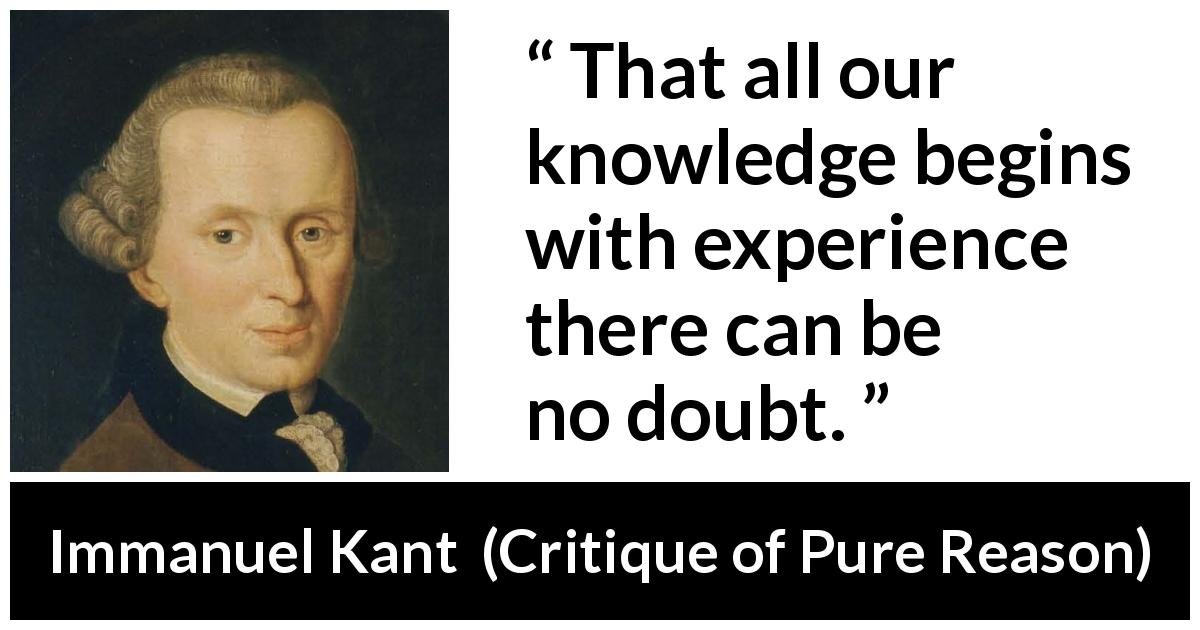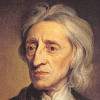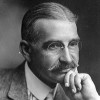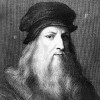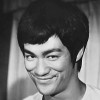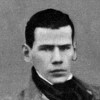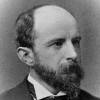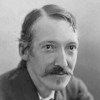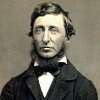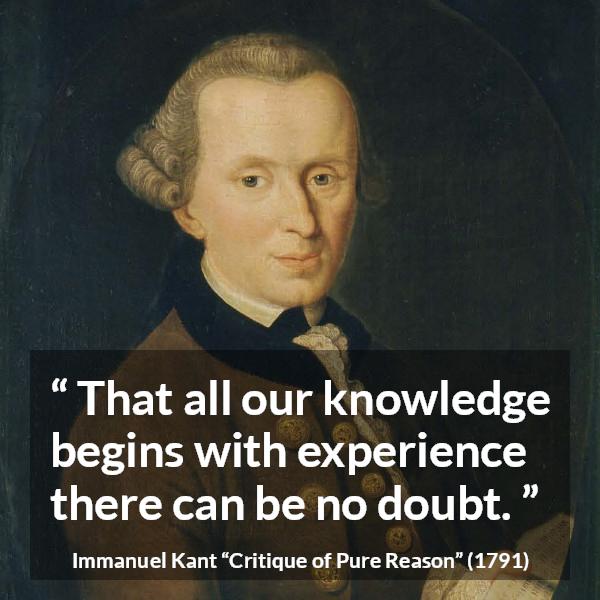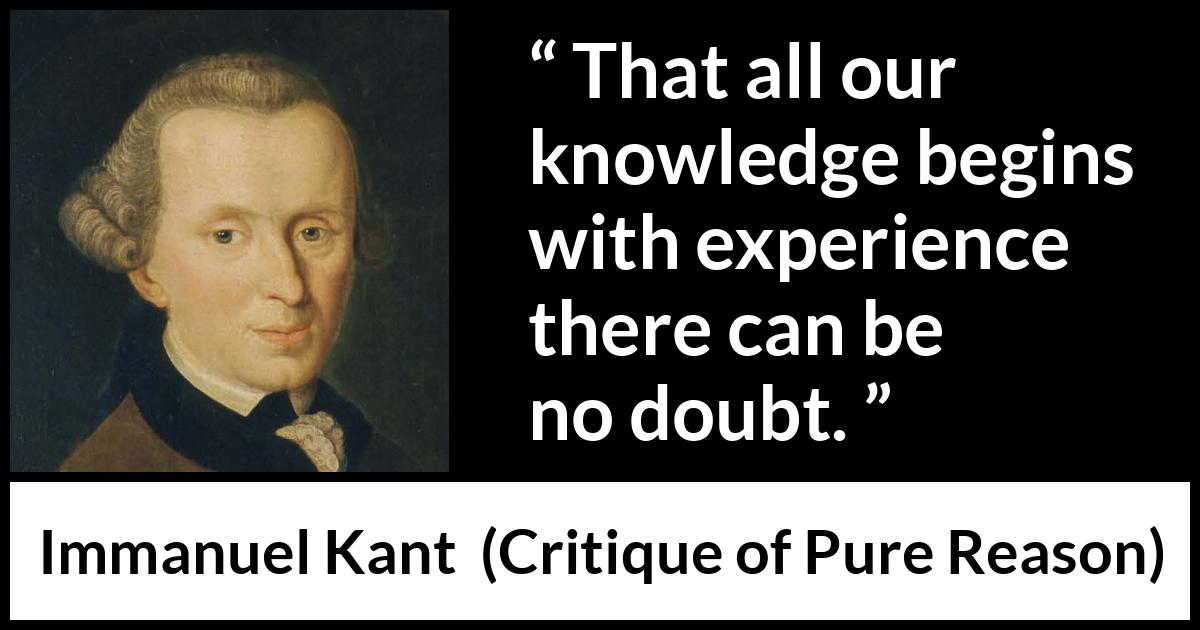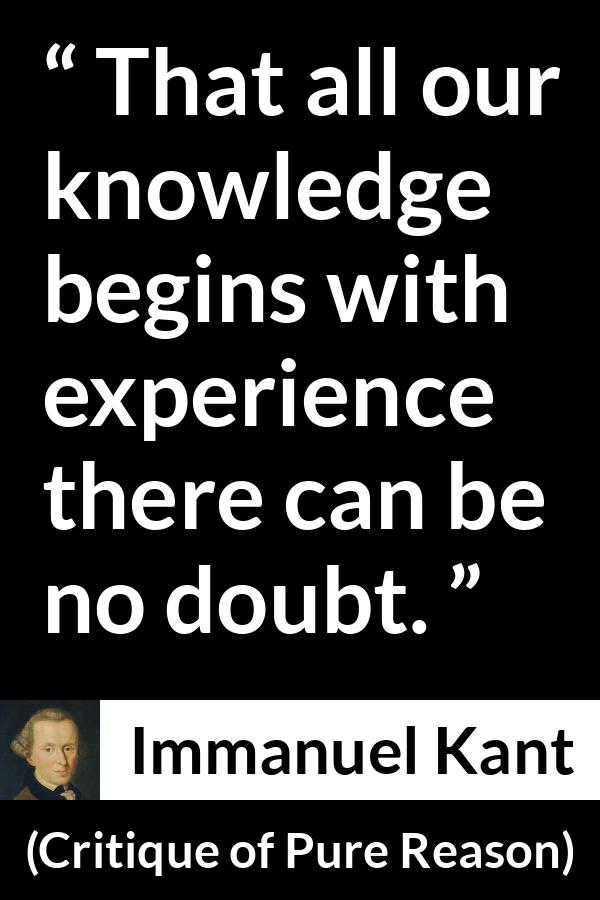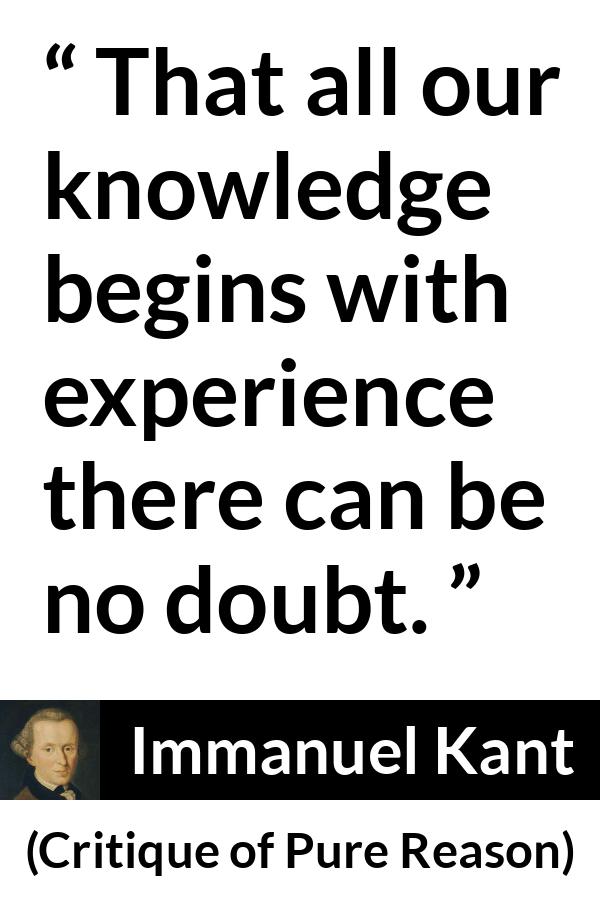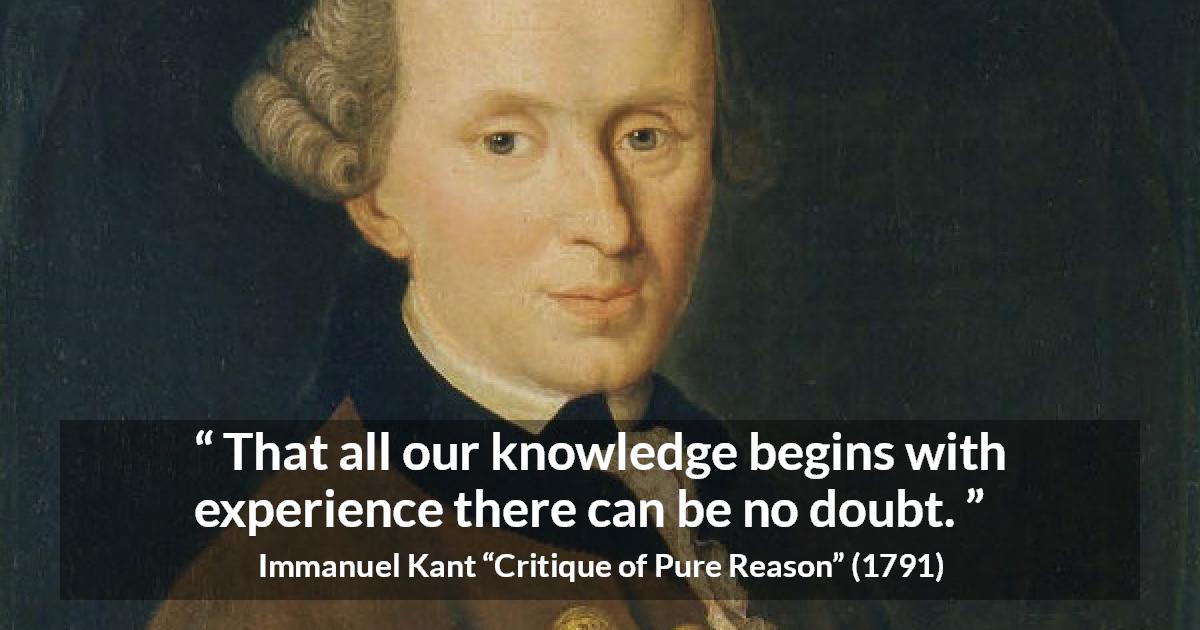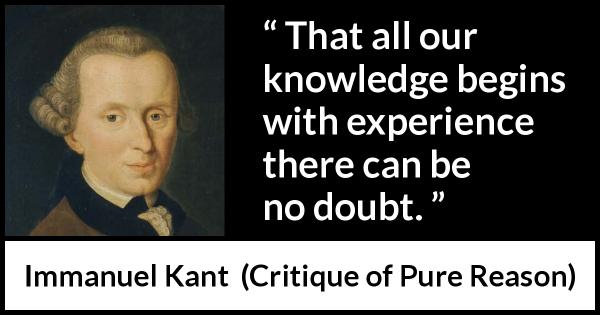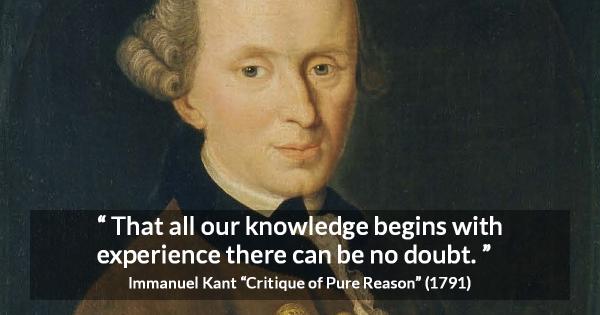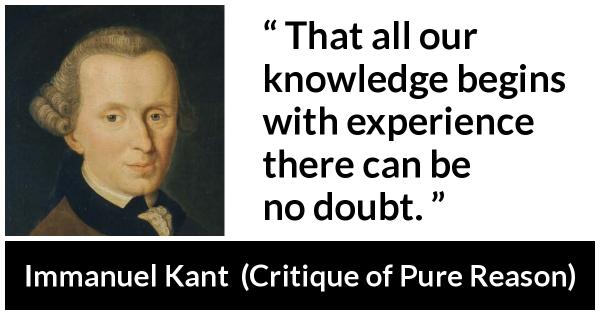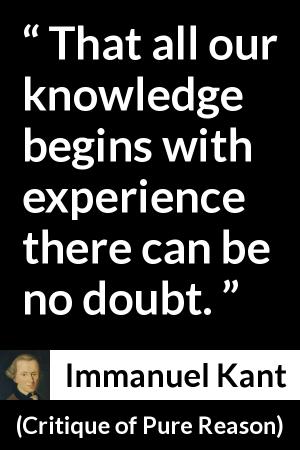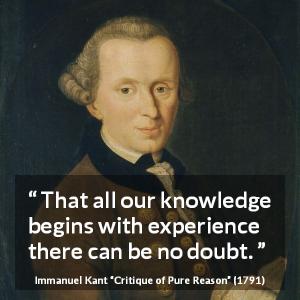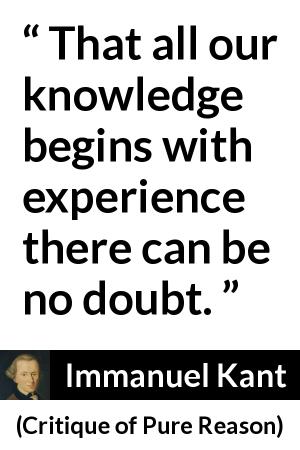“ That all our knowledge begins with experience there can be no doubt. ”
Immanuel Kant, Critique of Pure Reason (1791). copy citation
| Author | Immanuel Kant |
|---|---|
| Source | Critique of Pure Reason |
| Topic | doubt knowledge experience |
| Date | 1791 |
| Language | English |
| Reference | |
| Note | Translated by J. M. D. Meiklejohn |
| Weblink | http://www.gutenberg.org/files/4280/4280-h/4280-h.htm |
Context
“If a theory possesses stability in itself, the action and reaction which seemed at first to threaten its existence serve only, in the course of time, to smooth down any superficial roughness or inequality, and—if men of insight, impartiality, and truly popular gifts, turn their attention to it—to secure to it, in a short time, the requisite elegance also.
Königsberg, April 1787.
INTRODUCTION I. Of the difference between Pure and Empirical Knowledge That all our knowledge begins with experience there can be no doubt. For how is it possible that the faculty of cognition should be awakened into exercise otherwise than by means of objects which affect our senses, and partly of themselves produce representations, partly rouse our powers of understanding into activity, to compare to connect, or to separate these, and so to convert the raw material of our sensuous impressions into a knowledge of objects, which is called experience?” source
Königsberg, April 1787.
INTRODUCTION I. Of the difference between Pure and Empirical Knowledge That all our knowledge begins with experience there can be no doubt. For how is it possible that the faculty of cognition should be awakened into exercise otherwise than by means of objects which affect our senses, and partly of themselves produce representations, partly rouse our powers of understanding into activity, to compare to connect, or to separate these, and so to convert the raw material of our sensuous impressions into a knowledge of objects, which is called experience?” source
